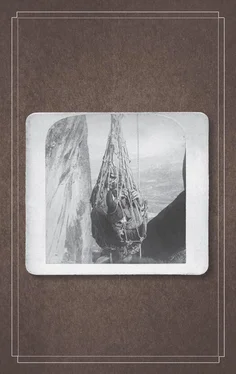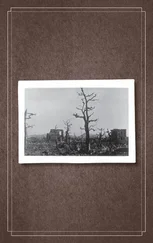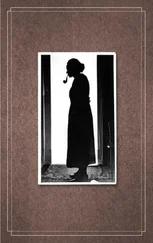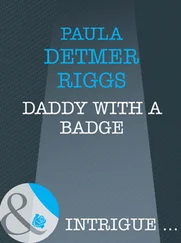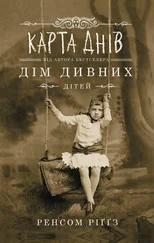“And we’re grateful for it,” said Emma, “and for your hospitality as well. But at the risk of seeming rude, we can’t possibly stay with you any longer. It’s very important that we reach London quickly. We have a train to catch.”
“For your sick friend?” Bekhir asked, raising an eyebrow at Hugh, who had long ago dropped his act and was now gulping down stew with abandon, bees buzzing happily around his head.
“Something like that,” said Emma.
Bekhir knew we were hiding something, but he was kind enough to let us have our secrets. “There won’t be any more trains tonight,” he said, “but we’ll rise at dawn and deliver you to the station before the first one leaves in the morning. Good enough?”
“It’ll have to be,” Emma said, her brow pinched with worry. Even though we’d saved time by hitching a ride instead of walking, Miss Peregrine had still lost an entire day. Now she had only two left, at most. But that was in the future; right now we were warm, well fed, and out of immediate danger. It was hard not to enjoy ourselves, if only for the moment.
We made fast friends with the Gypsies. Everyone was eager to forget what had happened between us earlier. Bronwyn tried to apologize to the boy she’d taken hostage, but he brushed it off like it had been nothing. The Gypsies fed us relentlessly, refilling my bowl again and again—overfilling it when I tried to refuse more. When Miss Peregrine hopped out of Bronwyn’s coat and announced her appetite with a screech, the Gypsies fed her, too, tossing hunks of raw meat in the air and cheering when she leapt up to snatch them. “She’s hungry!” Olive laughed, clapping as the bird shredded a pig knuckle with her talons.
“Now aren’t you glad we didn’t blow them up?” Bronwyn whispered to Enoch.
“Oh, I suppose ,” he replied.
The Gypsy band struck up another song. We ate and danced. I convinced Emma to take a turn around the fire with me, and though I was usually shy about dancing in public, this time I let myself go. Our feet flew and our hands clapped in time to the music, and for a few shining minutes we lost ourselves in it. I was able to forget how much danger we were in, and how that very day we had nearly been captured by wights and devoured by a hollow, our meat-stripped bones spat off a mountainside. In that moment I was deeply grateful to the Gypsies, and for the simplemindedness of the animal part of my brain; that a hot meal and a song and a smile from someone I cared about could be enough to distract me from all that darkness, if only for a little while. Then the song ended and we stumbled back to our seats, and in the lull that followed I felt the mood change. Emma looked at Bekhir and said, “May I ask you something?”
“Of course,” he said.
“Why did you risk your lives for us?”
He waved his hand. “You would’ve done the same.”
“I’m not sure we would’ve,” said Emma. “I just want to understand. Was it because we’re peculiar?”
“Yes,” he said simply. A moment passed. He looked away at the trees that edged our clearing, their firelit trunks and the blackness beyond. Then he said, “Would you like to meet my son?”
“Of course,” Emma said.
She stood, and so did I and several others.
Bekhir raised a hand. “He’s shy, I’m afraid. Just you,” he said, pointing to Emma, “and you”—he pointed at me—“and the one who can be heard but not seen.”
“Impressive,” said Millard. “And I was trying so hard to be subtle!”
Enoch sat down again. “Why am I always being left out of things? Do I smell?”
A Gypsy woman in a flowing robe swept into the campfire circle. “While they’re gone, I’ll read your palms and tell your fortunes,” she said. She turned to Horace. “Maybe you’ll climb Kilimanjaro one day!” Then to Bronwyn—“Or marry a rich, handsome man!”
Bronwyn snorted. “My fondest dream.”
“The future is my specialty, madam,” said Horace. “Let me show you how it’s done!”
Emma, Millard, and I left them and started across the camp with Bekhir. We came to a plain-looking caravan wagon, and he climbed its short ladder and knocked on the door.
“Radi?” he called gently. “Come out, please. There are people here to see you.”
The door opened a crack and a woman peeked out. “He’s scared. Won’t leave his chair.” She looked us over carefully, then opened the door wide and beckoned us in. We mounted the steps and ducked into a cramped but cozy space that appeared to be a living room, bedroom, and kitchen all in one. There was a bed under a narrow window, a table and chair, and a little stove that vented out a chimney in the roof; everything you’d need to be self-sufficient on the road for weeks or months at a time.
In the room’s lone chair sat a boy. He held a trumpet in his lap. I’d seen him play earlier, I realized, as part of the Gypsy children’s band. This was Bekhir’s son, and the woman, I assumed, was Bekhir’s wife.
“Take off your shoes, Radi,” the woman said.
The boy kept his gaze trained on the floor. “Do I have to?” he asked.
“Yes,” Bekhir said.
The boy tugged off one of his boots, then the other. For a second I wasn’t sure what I was seeing: there was nothing inside his shoes. He appeared to have no feet. And yet he’d had to work to get his boots off, so they had to have been attached to something . Then Bekhir asked him to stand, and reluctantly the boy slid forward in the chair and rose out of it. He seemed to be levitating, the cuffs of his pants hanging empty a few inches above the floor.
“He began disappearing a few months ago,” the woman explained. “First just his toes. Then his heels. Finally the rest, both feet. Nothing I’ve given him—no tincture, no tonic—has had the slightest effect in curing him.”
So he had feet, after all—invisible ones.
“We don’t know what to do,” said Bekhir. “But I thought, perhaps there’s a healer among you …”
“There’s no healing what he’s got,” said Millard, and at the sound of his voice in the empty air the boy’s head jerked up. “We’re alike, he and I. It was just the same for me when I was young. I wasn’t born invisible; it happened a little at a time.”
“Who’s speaking?” the boy said.
Millard picked up a scarf that lay on the edge of the bed and wrapped it around his face, revealing the shape of his nose, his forehead, his mouth. “Here I am,” he said, moving across the floor toward the boy. “Don’t be frightened.”
As the rest of us watched, the boy reached up his hand and touched Millard’s cheek, then his forehead, then his hair—the color and style of which it had never occurred to me to imagine—and even pulled a little hank of it, gently, as if testing its realness.
“You’re there ,” the boy said, his eyes sparkling with wonder. “You’re really there!”
“And you’ll be, too, even after the rest of you goes,” said Millard. “You’ll see. It doesn’t hurt.”
The boy smiled, and when he did, the woman’s knees wobbled and she had to steady herself against Bekhir. “Bless you,” she said to Millard, near tears. “Bless you.”
Millard sat down at Radi’s disappeared feet. “There’s nothing to be afraid of, my boy. In fact, once you adjust to invisibility, I think you’ll find it has many advantages …”
And as he began to list them, Bekhir went to the door and nodded at Emma and me. “Let’s let them be,” he said. “I’m sure they have a lot to talk about.”
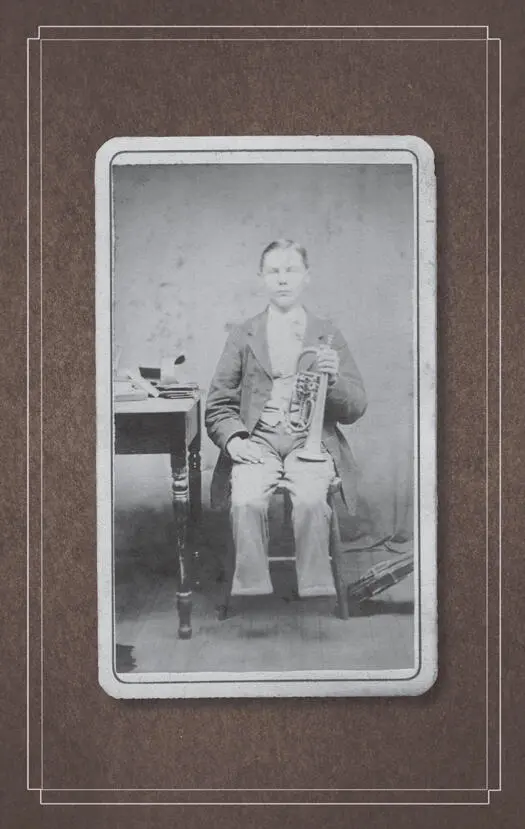
Читать дальше
